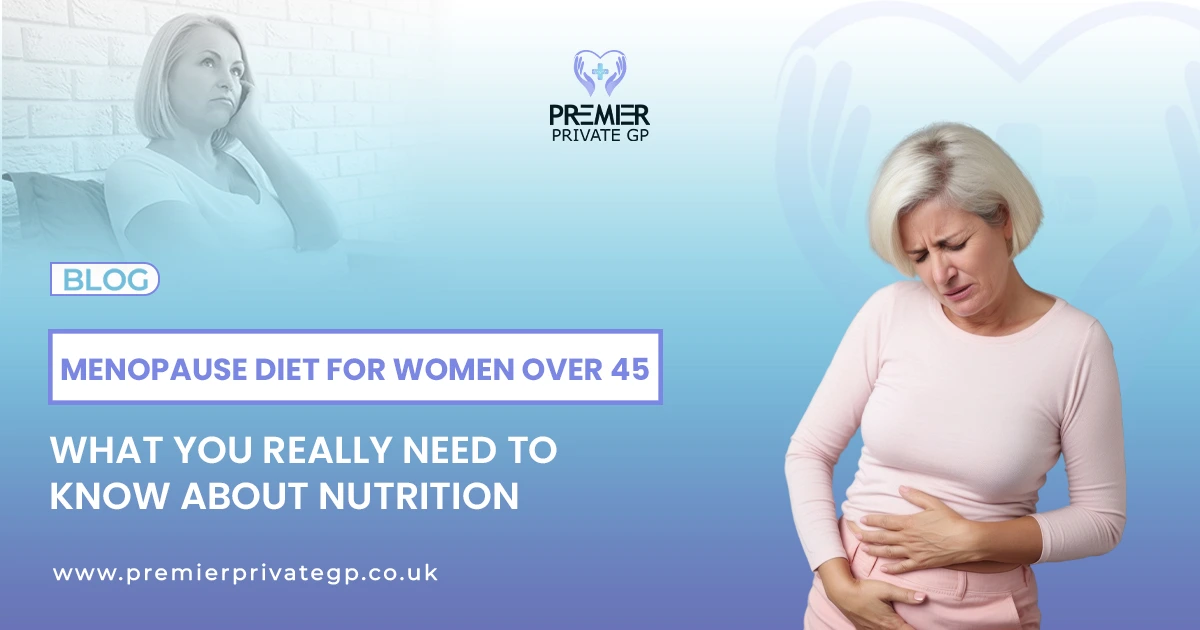Menopause can feel like a rollercoaster ride you didn’t sign up for—hot flashes, sleepless nights, mood swings, and energy dips. And amidst all that, the one question echoing in your head might be: “What can I eat to feel better?”
If this resonates, you’re not alone. For women over 45, nutrition isn’t just about calories—it’s about supporting your body through a transformative phase of life. Your plate can become your most powerful ally, helping you navigate menopause with grace and vitality. Let’s dive into what really works, without any fluff, gimmicks, or unnecessary restrictions.
Why Your Diet Matters During Menopause
Hormonal changes during menopause affect everything—from your metabolism to your bone health. The decline in oestrogen levels, for example, can lead to weight gain, loss of muscle mass, and even a higher risk of osteoporosis. The good news? The right diet can counteract these changes, making you feel more energised and in control.
It’s not about going on a “diet” (because honestly, who wants to stress about that?) but rather about fueling your body with foods that support your health, hormones, and happiness.
Power Foods for Women Over 45
Here’s the good stuff—foods that love your body back.
1. Calcium-Rich Foods for Strong Bones
Your bones need a little extra TLC during menopause. Foods like yoghurt, leafy greens, and fortified plant-based milks can keep your bones strong and reduce the risk of fractures.
Did you know? Women over 45 should aim for at least 1,200 mg of calcium daily.
2. Protein to Preserve Muscle Mass
As muscle mass naturally declines, protein becomes your best friend. Incorporate lean meats, eggs, fish, tofu, beans, and lentils into your meals. A high-protein breakfast can help you feel fuller and manage weight better.
3. Omega-3 Fatty Acids for Heart and Brain Health
Heart health is vital during menopause, and omega-3s are here to help. Found in salmon, walnuts, and chia seeds, they’re anti-inflammatory superheroes that also support cognitive function.
4. Whole Grains to Beat the Energy Slump
Quinoa, oats, and brown rice can stabilise your blood sugar and keep you energised throughout the day.
5. Phytoestrogen Foods for Hormonal Balance
Soy products, flaxseeds, and chickpeas mimic oestrogen in the body and can help reduce menopausal symptoms like hot flashes.
What to Avoid (or Enjoy in Moderation)
Let’s get real—nobody’s saying you can’t indulge. But there are a few culprits worth minimising:
1. Refined Sugars: They cause energy crashes and weight gain.
2. Processed Foods: High in sodium and preservatives, these can worsen bloating.
3. Caffeine and Alcohol: These can trigger hot flashes and disturb sleep.
Instead, focus on delicious alternatives. Craving something sweet? Go for dark chocolate or fresh berries. Love your morning coffee? Switch to green tea a few times a week for a metabolism-boosting, calming effect.
Sample Day on a Menopause-Friendly Diet
Here’s what a typical day of eating might look like:
· Breakfast: Scrambled eggs with spinach and whole-grain toast.
· Snack: Greek yoghurt with flaxseeds and a drizzle of honey.
· Lunch: Grilled salmon, quinoa, and roasted vegetables.
· Snack: A handful of almonds and an apple.
· Dinner: Lentil soup with a side of steamed broccoli.
This isn’t about perfection—it’s about progress. A few mindful swaps can make a world of difference.
Start Your Nutrition Journey Today
It’s time to rewrite the menopause story—from one of struggle to one of empowerment. You deserve to feel amazing in your own skin, and nutrition is the first step. If you’re ready to take control of your health, check out this helpful guide from NHS on menopause support.
Let’s take this journey together—because feeling good at 45+ isn’t just possible, it’s your right.







